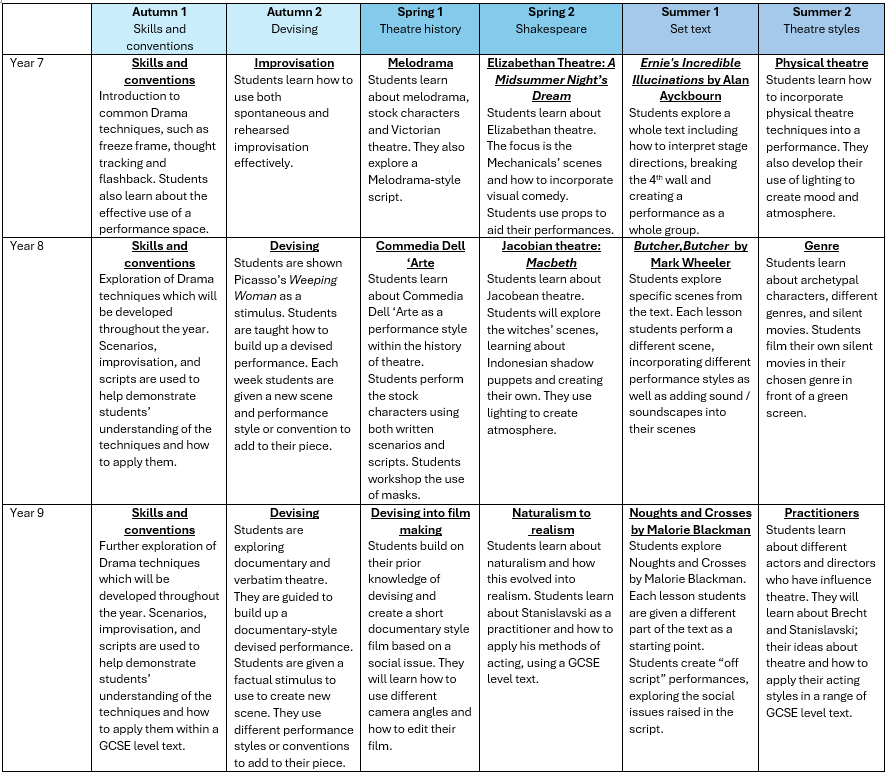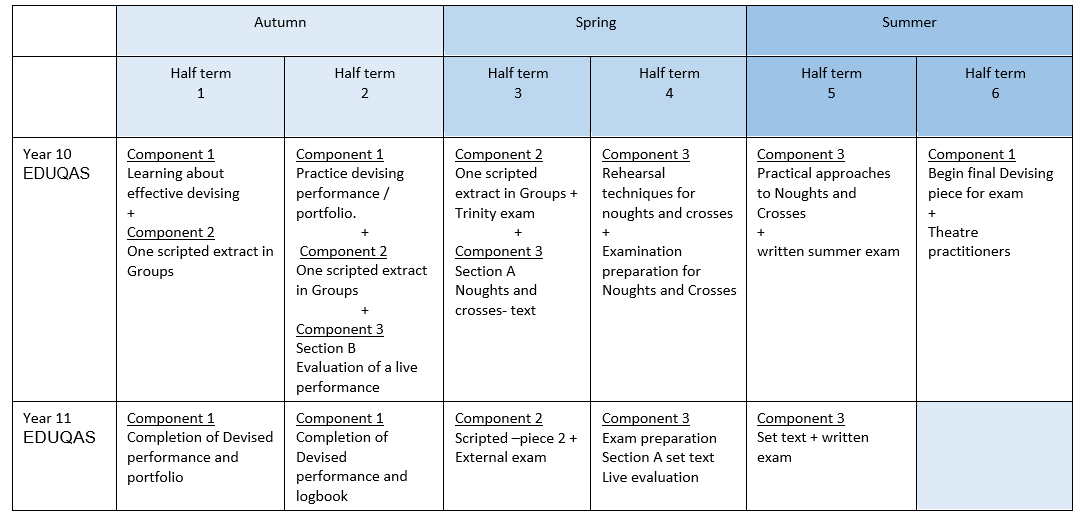In Drama at KS3, students study a range of topics including:
- Skills development
- Devising
- Script performance
- Shakespeare
- Theatre history
Year 7 students are introduced to a range of basic Drama conventions and skills to develop their knowledge which enables them to produce a variety of performances.
In year 8 students explore more complex Drama skills and conventions and apply this knowledge to practical performances.
In year 9 the curriculum is designed to create a pathway into KS4. As a result, students have greater autonomy to produce more sophisticated performance which incorporate both new skills and ones learnt in previous years.

At KS4 students are given the option to Study GCSE Drama

Subject Leader/s
Mrs J Brooks

